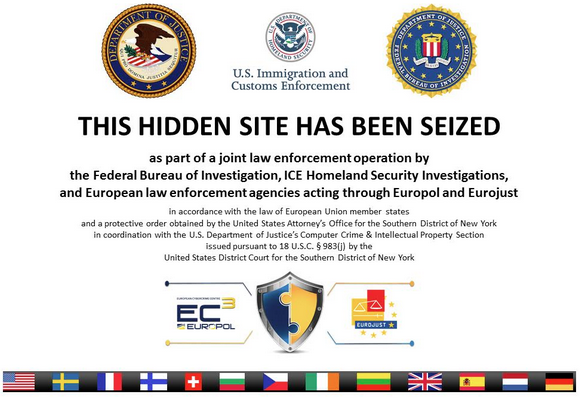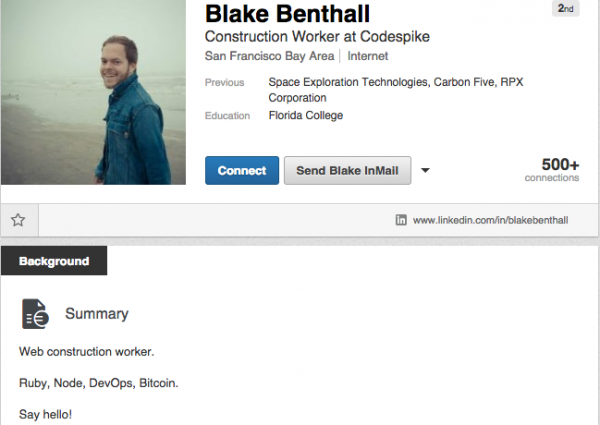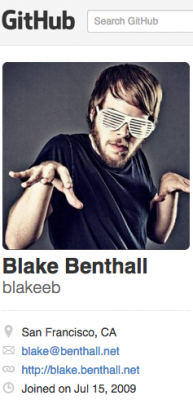Feds Arrest Alleged ‘Silk Road 2′ Admin, Seize Servers
jeudi 6 novembre 2014 à 18:34Federal prosecutors in New York today announced the arrest and charging of a San Francisco man they say ran the online drug bazaar and black market known as Silk Road 2.0. In conjunction with the arrest, U.S. and European authorities have jointly seized control over the servers that hosted Silk Road 2.0 marketplace.

The home page of the Silk Road 2.0 market has been replaced with this message indicating the community’s Web servers were seized by authorities.
On Wednesday, agents with the FBI and the Department of Homeland Security arrested 26-year-old Blake Benthall, a.k.a. “Defcon,” in San Francisco, charging him with drug trafficking, conspiracy to commit computer hacking, and money laundering, among other alleged crimes.
Benthall’s LinkedIn profile says he is a native of Houston, Texas and was a programmer and “construction worker” at Codespike, a company he apparently founded using another company, Benthall Group, Inc. Benthall’s LinkedIn and Facebook profiles both state that he was a software engineer at Space Exploration Technologies Corp. (SpaceX), although this could not be immediately confirmed. Benthall describes himself on Twitter as a “rocket scientist” and a “bitcoin dreamer.”
Benthall’s arrest comes approximately a year after the launch of Silk Road 2.0, which came online less than a month after federal agents shut down the original Silk Road community and arrested its alleged proprietor — Ross William Ulbricht, a/k/a “Dread Pirate Roberts.” Ulbricht is currently fighting similar charges, and made a final pre-trial appearance in a New York court earlier this week.
According to federal prosecutors, since about December 2013, Benthall has secretly owned and operated Silk Road 2.0, which the government describes as “one of the most extensive, sophisticated, and widely used criminal marketplaces on the Internet today.” Like its predecessor, Silk Road 2.0 operated on the “Tor” network, a special network of computers on the Internet, distributed around the world, designed to conceal the true IP addresses of the computers on the network and thereby the identities of the network’s users.
“Since its launch in November 2013, Silk Road 2.0 has been used by thousands of drug dealers and other unlawful vendors to distribute hundreds of kilograms of illegal drugs and other illicit goods and services to buyers throughout the world, as well as to launder millions of dollars generated by these unlawful transactions,”reads a statement released today by Preet Bharara, the United States Attorney for the Southern District of New York. “As of September 2014, Silk Road 2.0 was generating sales of at least approximately $8 million per month and had approximately 150,000 active users.”
The complaint against Benthall claims that by October 17, 2014, Silk Road 2.0 had over 13,000 listings for controlled substances, including, among others, 1,783 listings for “Psychedelics,” 1,697 listings for “Ecstasy,” 1,707 listings for “Cannabis,” and 379 listings for “Opioids.” Apart from the drugs, Silk Road 2.0 also openly advertised fraudulent identification documents and computer-hacking tools and services. The government alleges that in October 2014, the Silk Road 2.0 was generating at least approximately $8 million in monthly sales and at least $400,000 in monthly commissions.
The complaint describes how federal agents infiltrated Silk Road 2.0 from the very start, after an undercover agent working for Homeland Security investigators managed to infiltrate the support staff involved in the administration of the Silk Road 2.0 website.
“On or about October 7, 2013, the HSI-UC [the Homeland Security Investigations undercover agent] was invited to join a newly created discussion forum on the Tor network, concerning the potential creation of a replacement for the Silk Road 1.0 website,” the complaint recounts. “The next day, on or about October 8, 2013, the persons operating the forum gave the HSI‐UC moderator privileges, enabling the HSI‐UC to access areas of the forum available only to forum staff. The forum would later become the discussion forum associated with the Silk Road 2.0 website.”
The complaint also explains how the feds located and copied data from the Silk Road 2.0 servers. “In May 2014, the FBI identified a server located in a foreign country that was believed to be hosting the Silk Road 2.0 website at the time. On or about May 30, 2014, law enforcement personnel from that country imaged the Silk Road 2.0 Server and conducted a forensic analysis of it. Based on posts made to the SR2 Forum, complaining of service outages at the time the imaging was conducted, I know that once the Silk Road 2.0 server was taken offline for imaging, the Silk Road 2.0 website went offline as well, thus confirming that the server was used to host the Silk Road 2.0 website.”
The government’s documents detail how Benthall allegedly hatched a selfless plan to help the Silk Road 2.0 community recover from an incident in February 2014, wherein thieves stole millions of dollars worth of Bitcoins from community users.
“On or about September 11, 2014, Defcon had an online conversation with the HSI-UC, in which he discussed, in sum and substance, his intention to reopen the Silk Road 2.0 marketplace, and his plan to recoup the deficit of Bitcoins that had been stolen from Silk Road 2.0. Specifically, Defcon confirmed that the site needed to recoup approximately 2,900 Bitcoins to cover the loss, and stated that he intended to donate approximately 1,000 of his own Bitcoins to return liquidity to Silk Road 2.0 (“I’m planning to throw my 1000 BTC to kickstart the thing.”).”
“Defcon further acknowledged that the site had approximately 150,000 monthly active users (“We have 150,000 monthly active users. That’s why we have to save this thing.”). The HSI‐UC asked how long it would take to recover from the theft, and Defcon replied that it would take approximately three months’ worth of commission payments, if sales on Silk Road 2.0 continued at a steady rate (“Three months if sales continue at current pace and we don’t bottom out”). Thus, Defcon appears to have expected Silk Road 2.0 to generate approximately $6 million in monthly sales over the next three months, which would have resulted in commissions over that three‐month period totaling approximately $900,000 ‐ equal to approximately 1,900 Bitcoins at the then prevailing exchange rate.“
Benthall’s biggest mistake may have been using his own personal email to register the servers used for the Silk Road 2.0 marketplace. In the complaint against Benthall, an undercover agent who worked the case said that “based on a review of records provided by the service provider for the Silk Road 2.0 Server, I have discovered that the server was controlled and maintained during the relevant time by an individual using the email account blake@benthall.net.”
“To me, it appears that both the human element, an undercover agent, plus technical attacks in discovering the hidden service, both played a key part in this arrest,” said Nicholas Weaver, a researcher at the International Computer Science Institute (ICSI) and at the University of California, Berkeley.
Federal agents also say they tracked Benthall administering the Silk Road 2.0 from his own computer, and using Bitcoin exchanges to make large cash withdrawals. In one instance, he allegedly cashed out $270,000, and used $70,000 for a down payment on a Tesla Model S, a luxury electric car worth approximately USD $127,000.
Benthall faces a raft of serious charges that could send him to federal prison for life. He is facing one count of conspiring to commit narcotics trafficking, which carries a maximum sentence of life in prison and a mandatory minimum sentence of 10 years in prison; one count of conspiring to commit computer hacking, which carries a maximum sentence of five years in prison; one count of conspiring to traffic in fraudulent identification documents, which carries a maximum sentence of 15 years in prison; and one count of money laundering conspiracy, which carries a maximum sentence of 20 years in prison.
A copy of the complaint against Benthall is available here.
Update, Nov 7, 9:01 a.m. ET: The National Crime Agency in the United Kingdom is reporting that the demise of Silk Road 2.0 was part of a much larger operation targeting more than 400 “dark web” sites. From their press release:
“The six people arrested on suspicion of being concerned in the supply of controlled drugs were a 20-year-old man from Liverpool city centre, a 19-year-old man from New Waltham, Lincolnshire; a 30-year-old man from Cleethorpes; a 29-year-old man from Aberdovey, Wales; a 58-year-old man from Aberdovey, Wales; and a 58-year-old woman from Aberdovey, Wales. All six were interviewed and have been bailed pending further enquiries.” Read more here.

